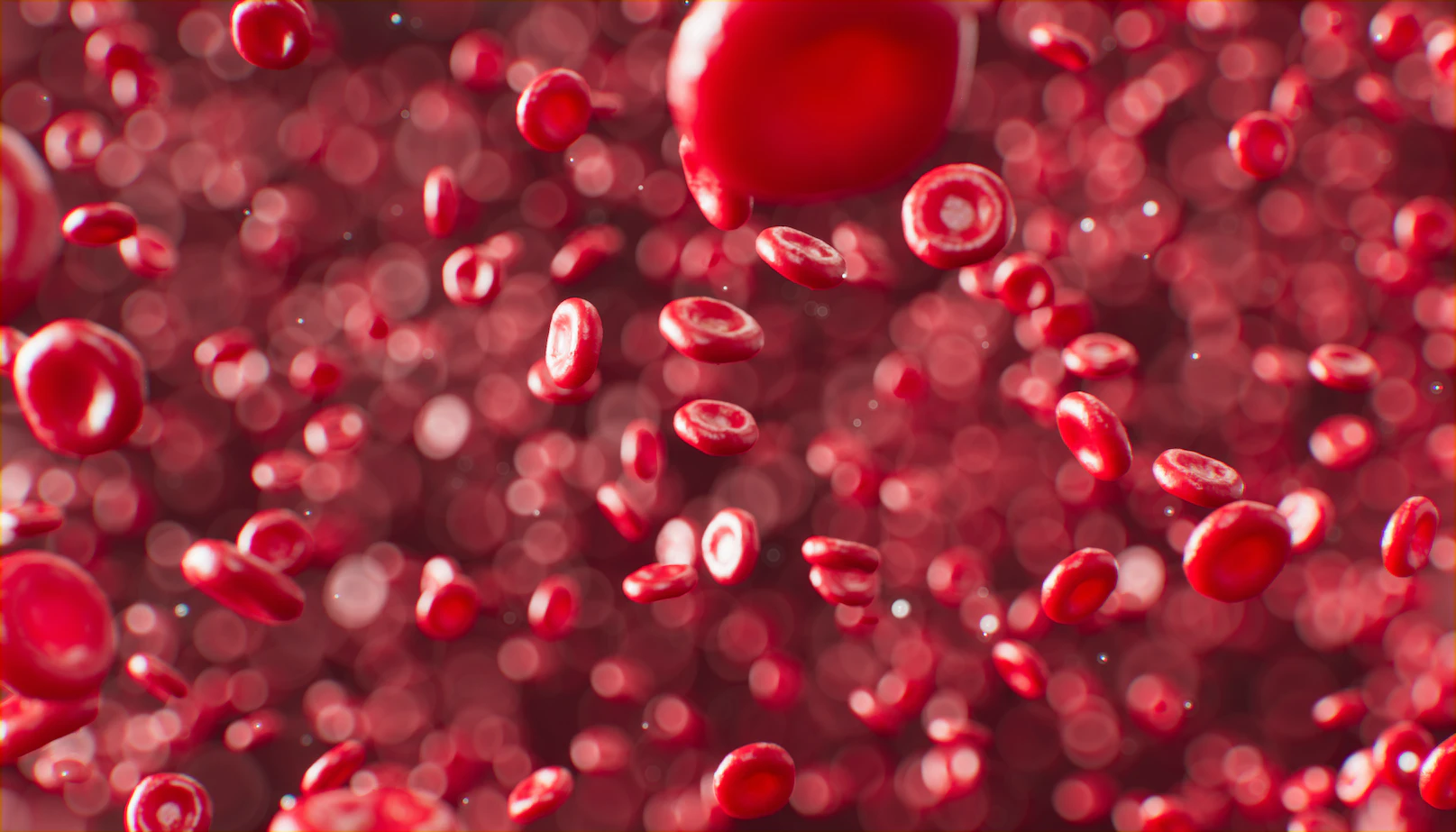Preventive Healthcare
Exploring Total Blood in Human Body: Blood Volume in Litres & Percentage
221117 Views
0

How Much Blood Is in Your Body?
An average adult human has around 5 litres of blood or 7-8% of your total body weight. However, the normal blood percentage in the human body depends on age, height and weight. Furthermore, the total blood in the human body in litres differs in males and females. Total blood volume also depends on where you live. For example, people living at higher altitudes will have more blood due to less oxygen at such heights.
Here are the estimates of the total blood in the human body in litres:
- Infants: Infants born full-term have around 75 ml of blood per kilogram of their body weight. For example, an 8-pound baby has about 270 ml of blood.
- Children: Total blood volume in children amounts to 8-9% of their body weight. So, an 80-pound child will have approximately 2,650 ml or 0.7 gallons of blood.
- Pregnant women: To support the growth of their babies, pregnant women will have 50-60% more blood volume compared with women who are not pregnant.
- Average adult male: An adult male should have a blood volume of 5.5 litres.
- Average adult female: An adult female should have a blood volume of about 4.5 litres.
A blood volume test can measure the total blood in humans in litres. Let us learn more about this test and when it is needed. We will also learn about the components of blood and the factors affecting blood volume.
What Are the Components of Blood?
Your body makes about 2 million red blood cells every second. The stem cells in the bone marrow create these blood cells.
Your blood contains the following components:
- Platelets: These are cells that support blood clotting.
- Plasma: It is the liquid component of blood. It consists of about 90% of water
- Red blood cells: These cells carry oxygen to your tissues.
- White blood cells: These cells are a part of the immune system that safeguards your body from infections.
How Does Your Body Maintain the Blood Volume?
Your cardiovascular system moves the blood around your body. The heart pumps the blood to the blood vessels. The blood vessels deliver blood to every organ and provide it with oxygen and nutrients.
Besides the cardiovascular system, other systems also help in maintaining blood volume, which include the following:
- The kidneys maintain the fluid balance in the body.
- The skeletal system or the bone marrow produces the blood cells.
- And the nervous system helps other systems fulfil their roles.
Any problem with these systems can affect the blood volume and the delivery of oxygen and nutrients to the organs.
What Are the Factors Affecting Blood Volume?
Several factors affect blood volume causing it to either increase or decrease.
- When your blood volume increases, it is called hypervolemia.
- When blood volume decreases, it is termed hypovolemia.
Conditions that cause hypervolemia are:
- Excessive salt intake
- Kidney failure
- Liver failure
- Congestive heart failure
Symptoms of hypervolemia are:
- High blood pressure
- Shortness of breath
- Congestive heart failure
- Swelling in the abdomen
- Swelling of the feet, ankles, wrists and face
Conditions that cause hypovolemia are:
- Haemorrhage or loss of blood
- Dehydration
A decrease in blood volume can lead to hypovolemic shock. This happens when your body tries to balance reduced blood flow by
- Lowering blood pressure
- Increasing heart rate and breath rate
Testing Total Blood in the Human Body in Litres
Your doctor can estimate the amount of blood in your body based on your weight and fluid levels. They can also recommend the hematocrit test to measure the amount of blood in your body compared with the total fluid. But, doctors recommend the nuclear medicine test to measure the total blood in the human body in litres.
In the case of trauma, such as an accident, your doctors will consider your weight and factors, such as heart rate, breathing rate and blood pressure, to determine the amount of blood loss.
Your doctor may recommend the blood volume test to determine the total blood in the human body in litres in the case of a medical emergency, such as.
- Dehydration
- Loss of blood
- Heart failure
- Kidney failure
- Burns
- Shocks
They may also use this test to help with the following conditions:
- To assess anaemia
- To assess high and low blood pressure
- To understand the cause of syncope or fainting
- And for screening before surgery.
How to Prepare for Blood Volume Testing
Your lab technician will advise you to avoid eating or drinking a few hours before the test and to avoid caffeine or caffeinated beverages. These are diuretics and increase urine production.
For the test to determine the total blood in the human body in litres,
- The lab technician will place a needle in a vein on your arm to draw the blood through an IV tube.
- They will inject a radioactive tracer called iodine-131 human serum albumin through the IV.
- The tracer will take around 12 minutes to mix with your blood.
- The technician will then draw several blood samples every 6 minutes.
- The test takes 90 minutes.
- After the test, you will be advised to drink extra fluids to flush out the tracer.
The result of the test for measuring total blood in the human body in litres will show if the blood volume is too high, too low or average.
Your doctor will diagnose your condition and prescribe a treatment based on the result.
Book Blood Test at Home
To Sum Up
The blood volume in your body changes due to trauma and several health conditions, which can cause severe complications, such as haemorrhagic shock. It is a life-threatening condition and requires immediate medical attention and blood transfusion. However, your body can replace a small amount of lost blood, for example, during blood donation. Doctors recommend the nuclear medicine test to measure the total blood in the human body in litres.
For regular blood tests, always trust certified pathology laboratories like Metropolis India. They employ advanced diagnostic techniques to offer you timely and accurate results.
























